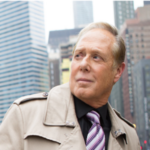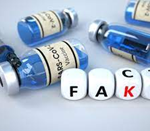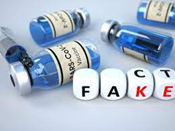 Even though pharmacists are a critical part of the continuum of care, and despite the strains of the pandemic falling on them just as hard, if not harder, than other healthcare providers, many feel that their challenges and concerns are not afforded the same respect or attention as other practitioners. And they have had enough. Due to understaffing, unreasonable employer demands, poor working conditions, and performance-based metrics that are antithetical to the delivery of quality care, pharmacists have been leaving their chosen profession in droves. This toxic combination has created a nationwide shortage of qualified pharmacists, causing pharmacies to limit their hours and making it harder for patients to access their services and fill their prescriptions.
Even though pharmacists are a critical part of the continuum of care, and despite the strains of the pandemic falling on them just as hard, if not harder, than other healthcare providers, many feel that their challenges and concerns are not afforded the same respect or attention as other practitioners. And they have had enough. Due to understaffing, unreasonable employer demands, poor working conditions, and performance-based metrics that are antithetical to the delivery of quality care, pharmacists have been leaving their chosen profession in droves. This toxic combination has created a nationwide shortage of qualified pharmacists, causing pharmacies to limit their hours and making it harder for patients to access their services and fill their prescriptions.
Illinois pharmacists are not immune from the burnout that has driven so many of their colleagues out of their careers. But they do have one advantage over pharmacists in most other states. In recent years, Illinois took an important step to address pharmacist burnout through legislation designed to improve their working conditions, limit their hours, and otherwise protect them from unreasonable demands. Pharmacies and employers that violate these protective provisions face potential licensing problems and other serious consequences.
Burnout Driving Pharmacists Out, Leaving Behind a Staffing Crisis
The latest National Pharmacy Workplace Survey from the National Alliance of State Pharmacy Associations (NASPA) found “increasing demands, harassment, and bullying by patients/consumers experienced by pharmacy staff” and that “the feelings of not being heard or valued are risk factors that can cause stress leading to occupational burnout.”
Pharmacists were feeling the burn even before the pandemic began, with 91% of full-time chain pharmacists seeing their workloads as “excessive” and 69% of full-time pharmacists reporting that their workloads had “increased” or “greatly increased” compared to the year before (2018), according to the 2019 National Pharmacist Workforce Study. Additionally, many large chains made compensation and advancement dependent on speed and meeting targets like filling a certain number of prescriptions each day, increasing stress along with the risk of serious medication errors. When COVID testing, vaccination, and related responsibilities were piled on top of this already heavy workload, the profession reached a tipping point, creating the dire shortage facing the country today.
A summer 2022 survey by the National Community Pharmacists Association found that 76% of independent community pharmacies were having a “difficult time” filling staff positions. Pharmacy behemoths CVS and Walgreens are also feeling the impact, with both chains announcing cutbacks in hours due to a lack of qualified staff.
Illinois Puts Limits On Pharmacists’ Hours and Workloads
In 2020, Illinois amended the Pharmacy Practice Act to specifically address poor working conditions and unreasonable demands placed on pharmacists in the state. Specifically, Section 15.1 of the Act provides that, except in an emergency:
- The workday for a pharmacist, student pharmacist, and pharmacy technician shall not exceed 12 hours, including breaks;
- If a pharmacist has to work six continuous hours or longer in a day, they will be allowed to take one 30-minute uninterrupted meal break and one 15-minute break during the day;
- If a pharmacist has to work 12 continuous hours or longer in a day, they will be allowed to take one 30-minute uninterrupted meal break and two 15-minute breaks during the day; and
- A pharmacist entitled to a meal break cannot be required to work more than five continuous hours (So, a pharmacist who is required to work 6 hours or longer cannot be given a meal break during the last half hour of their shift).
- If a pharmacy or a building where a pharmacy is located has a private break room, the pharmacist must be given access to the break room and be permitted to have breaks in that room. The pharmacy can close while the pharmacist is on break, but it is not required to do so. If the pharmacy does not close, the pharmacist must remain in the pharmacy or establishment where the pharmacy is located during the break for emergencies.
Consequences For Non-Compliant Pharmacies, Whistleblower Protections For Reporting Pharmacists
A licensed pharmacy that disregards the foregoing requirements or otherwise imposes unreasonable working conditions on pharmacists faces the loss of its license, fines, and other consequences. Specifically, a pharmacy is subject to license revocation and other disciplinary action if it:
- Fails to provide a working environment for all pharmacy personnel that may jeopardize the health, safety, or welfare of patients;
- Fails to employ sufficient personnel to prevent fatigue, distraction, or other conditions that interfere with a pharmacist’s ability to practice with competency and safety or creates an environment that jeopardizes patient care;
- Fails to provide appropriate opportunities for uninterrupted rest periods and meal breaks;
- Fails to provide adequate time for a pharmacist to complete professional duties and responsibilities, including drug utilization review, immunization, counseling, prescription verification, and all other duties as listed in the Department rules;
- Introduces or enforces external factors, such as productivity, production quotas, or other programs against pharmacists, student pharmacists, or pharmacy technicians, to the extent that they interfere with the ability to provide appropriate professional services to the public.
Pharmacists who report violations of the law regarding working conditions are protected from retaliation and can avail themselves of the remedies provided in the Illinois Whistleblower Act.
If you are a pharmacist or pharmacy with concerns about compliance with Illinois law or licensing issues related to working conditions or other obligations, please call me at (312) 236-2433 or fill out my online form to arrange for your free initial consultation.

 It’s been five years since the #MeToo movement spurred a long-overdue reckoning with sexual harassment and misconduct in the workplace and elsewhere. A long and infamous line of high-profile individuals have since found their careers derailed and reputations destroyed by allegations of inappropriate and often illegal behavior. In most of these cases, the focus is justifiably on the alleged perpetrators of these abhorrent actions. But many organizations and professions have also come under scrutiny for their tacit complicity in allowing such conduct to go unchecked or unreported.
It’s been five years since the #MeToo movement spurred a long-overdue reckoning with sexual harassment and misconduct in the workplace and elsewhere. A long and infamous line of high-profile individuals have since found their careers derailed and reputations destroyed by allegations of inappropriate and often illegal behavior. In most of these cases, the focus is justifiably on the alleged perpetrators of these abhorrent actions. But many organizations and professions have also come under scrutiny for their tacit complicity in allowing such conduct to go unchecked or unreported.  “Careers are on the line, livelihoods are at stake, and reputations hang in the balance. I never lose sight of that.”
“Careers are on the line, livelihoods are at stake, and reputations hang in the balance. I never lose sight of that.” Solo dental practitioners get to call all the shots, run their practice as they like, and control their own destiny. But going it alone also means paying all the bills, covering all overhead, assuming all management responsibilities, and competing with other practices that may have greater resources and reach. That is why many solo practitioners ultimately decide to join forces with one or more colleagues and form a dental partnership.
Solo dental practitioners get to call all the shots, run their practice as they like, and control their own destiny. But going it alone also means paying all the bills, covering all overhead, assuming all management responsibilities, and competing with other practices that may have greater resources and reach. That is why many solo practitioners ultimately decide to join forces with one or more colleagues and form a dental partnership. Illinois licensed professionals of all stripes – from physicians and accountants to hairstylists and mortgage brokers – work with countless clients and patients throughout their long careers. As a Chicago professional license defense attorney, I’ve done the same. If you are one of those professionals, you are probably great at what you do, skilled and ethical, and with a long roster of folks singing your praises and leaving you glowing reviews.
Illinois licensed professionals of all stripes – from physicians and accountants to hairstylists and mortgage brokers – work with countless clients and patients throughout their long careers. As a Chicago professional license defense attorney, I’ve done the same. If you are one of those professionals, you are probably great at what you do, skilled and ethical, and with a long roster of folks singing your praises and leaving you glowing reviews. If you hold a professional license in Illinois, the Illinois Department of Financial and Professional Regulation (IDFPR) holds your career in its hands. If they deny your Illinois professional license renewal, notify you of a complaint, launch an investigation, or start disciplinary proceedings against you, everything is on the line.
If you hold a professional license in Illinois, the Illinois Department of Financial and Professional Regulation (IDFPR) holds your career in its hands. If they deny your Illinois professional license renewal, notify you of a complaint, launch an investigation, or start disciplinary proceedings against you, everything is on the line. As I
As I  The epidemic continues. It continues to spread unabated. It continues to fill up hospitals and morgues. And if a physician contributes to this epidemic of misinformation and disinformation surrounding COVID-19 vaccines, they could face disciplinary action, including the loss of their license to practice medicine.
The epidemic continues. It continues to spread unabated. It continues to fill up hospitals and morgues. And if a physician contributes to this epidemic of misinformation and disinformation surrounding COVID-19 vaccines, they could face disciplinary action, including the loss of their license to practice medicine. There is no more debate for healthcare workers in Illinois about whether to get vaccinated against COVID-19 (not that there should have been any debate), at least if they want to continue working. On August 26, 2021, Gov. J.B. Pritzker issued
There is no more debate for healthcare workers in Illinois about whether to get vaccinated against COVID-19 (not that there should have been any debate), at least if they want to continue working. On August 26, 2021, Gov. J.B. Pritzker issued  Like many business owners, physicians who own medical practices often require employees, including associate physicians, nurses, and other critical staff members, to sign non-competition and non-solicitation agreements to protect their practice, patients, and personnel. But the ability of medical practice owners to use non-competes and other restrictive covenants in employment contracts will soon be curtailed under a recently passed law that Gov. JB Pritzker is expected to sign.
Like many business owners, physicians who own medical practices often require employees, including associate physicians, nurses, and other critical staff members, to sign non-competition and non-solicitation agreements to protect their practice, patients, and personnel. But the ability of medical practice owners to use non-competes and other restrictive covenants in employment contracts will soon be curtailed under a recently passed law that Gov. JB Pritzker is expected to sign. 